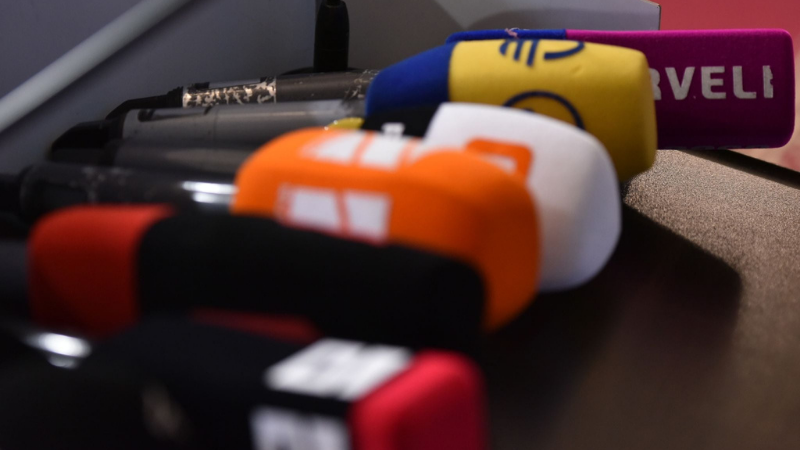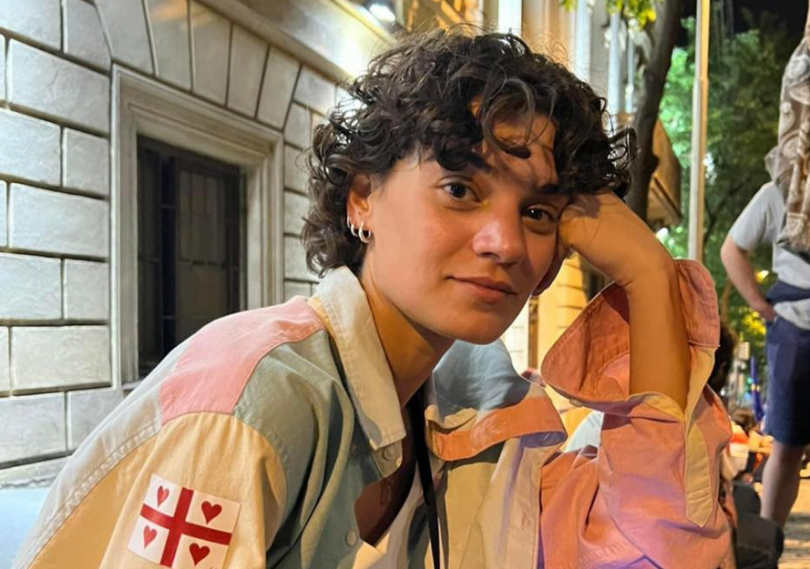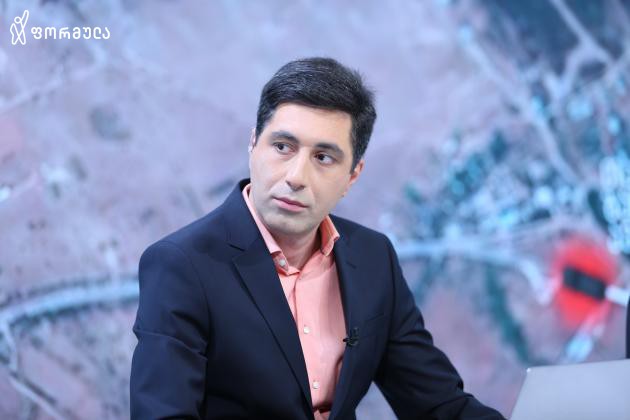TI Georgia, the member of the Media Advocacy Coalition’s article on media environment.
The media environment has deteriorated systemically in Georgia during the past year (03/05/2022-03/05/2023), which is also confirmed by assessments of international authoritative organizations. For example, according to the evaluation of the organization Reporters Without Borders, the index of press freedom in Georgia has deteriorated significantly, and the country has moved from the 60th to the 89th place. The 2023 report of the authoritative organization Human Rights Watch emphasizes the deterioration of the condition of media freedom in Georgia. The European Parliament has also adopted a special resolution on violations of media freedom and the safety of journalists in Georgia, emphasizing that freedom of expression and the safety of journalists is one of the important indicators for the consolidation of democracy.
TI Georgia systematically responds to the tendency of deterioration of the media environment. We are going to single out several steps that point to systemic deterioration of the media environment during the past year and are characteristic of kleptocratic governance.
Jailing of a media manager
On May 16, 2022, the court sentenced Nika Gvaramia, the founder and director of Mtavari Arkhi TV station to imprisonment for three years and six months. The Public Defender of Georgia assessed the court decision as politically motivated. The court’s decision has received a critical response on a number of occasions from both local and international organizations. Nika Gvaramia’s jailing was included in the 2023 report of Human Rights Watch, while Amnesty International called the case politically motivated. Almost a year after his imprisonment, 11 authoritative international organizations called upon the President of Georgia, Salome Zurabishvili, to take steps to release Nika Gvaramia from prison. The statement released by them on April 20, 2023, says that Gvaramia’s jailing is damaging the country’s reputation and that one of the points of the European Commission’s recommendationspoints precisely to this. In connection with the World Press Freedom Day, the U.S. Helsinki Commission responded to the imprisonment of Nika Gvaramia.
Violence against journalists and inadequate investigations
Frequent attacks on journalists in Georgia have come under the focus of international organizations again. The situation is exacerbated by inadequate investigation of crimes committed against journalists and the failure of the authorities to fulfill their constitutional obligations. The organizers of the rally of July 5, 2021 – during which more than 50 representatives of the media sustained injuries – still remain unpunished. They included a cameraman of TV Pirveli, Lekso Lashkarava, who died a few days after the violent events. TI Georgia is defending the rights of 24 injured journalists in court to this day.
Tens of cases of wiretapping of journalists are yet to be investigated. The practice of interference with journalistic activity and intensification of self-censorship has a systemic character. The dangers intensify particularly in periods of crises. For example, the period of consideration of the Russian law and of the legitimate protests in March 2023 saw a number of instances of purposeful interference with journalistic activity and cases of using excessive force against journalists by law enforcement officers. The Editor of Publika, Zura Vardiashvili, and a journalist of the Tabula online publication, Beka Jikurashvili, were also detained at the same protest rallies. In spite of the fact that the case file does not contain any kind of evidence of the commission of an offence by the journalists, the court imposed a fine of GEL 2,200 on both of them.
On March 15, 2023, in the village of Bakhvi, the journalist Nato Gogelia was attacked by a representative of the pro-Russian Conservative movement (Alt-Info), who physically assaulted the journalist and broke her mobile phone. The investigative services detained one person in connection with this fact, and later released him on bail.
The use of the justice system against the media
The Georgian media environment is further damaged by the strengthening of kleptocratic governance, when ruling elites enrich themselves by capturing the country’s resources and expand their power and influence. Kleptocracy is directly related to corruption, and one of its characteristics is the silencing of journalists working on topics of corruption by various methods, including filing defamation lawsuits against them in court.
An alarmingly increasing number of coordinated lawsuits filed in courts against representatives of the critical media due to defamatory statements is becoming a dangerous trend in Georgia. According to information collected by TI Georgia, a large part of the plaintiffs against three leading critical TV stations – Mtavari Arkhi, Formula and TV Pirveli – are representatives of the ruling party and persons close to them. In the recent years, TI Georgia has been observing an established practice of conducting trials in which, despite an unequivocal norm established by legislation, the burden of proof still shifts to the journalist. There are cases when the authors of defamation lawsuits demand the seizure of the journalist’s personal accounts and property, in order to intensify the pressure on journalistic activity.
Such a wave of pressure on critical media, which takes place against the background of the already internationally acknowledged backsliding in the country’s democratic development, full conforms to signs of kleptocratic governance.
The effect of deteriorated legislation on freedom of expression and financial independence
In the years 2022-2023, the authorities made negative changes to the law, which pose a threat to freedom of expression and the financial vitality of the media. Against the background of the post-Soviet legacy, the absence of healthy models of funding (for example, donations of subscribers and media consumers) remains a problem in the mainstream media. Therefore, even if a “window of opportunity” opens for the country and there is political will, preparation of effective mechanisms for ensuring the financial sustainability of the media will remain a challenge.
The entry into force of changes to the Law on Broadcasting from March 2022 has had a considerable impact on the financial vitality of broadcasters. The changes prohibited the advertising of gambling, totalizators, lotto, bingo and their organizers, sponsorship announcements, and placement of a product in a program. The said companies used to be large funders of the media and, from the very beginning, there was an expectation that the ban would have a negative impact on the media market and revenues. According to the statement released by the Communications Commission, TV and radio broadcasters’ total commercial advertising revenues have decreased by 7.6% compared with the previous year.
Media outlets that are far from political affiliation and, at the same time, are distinguished by a critical editorial policy, also face problems. On February 1, 2023, a regional (Samegrelo-Zemo Svaneti) online media outlet Livepress released a statement about termination of its functioning after 12 years of operation, naming financial problems as the reason. The media outlet had existed since 2011 and enjoyed a high level of trust among the region’s population.
At the end of 2022, the Parliament adopted another set of changes to the Law on Broadcasting, which, along with regulating other disputed issues, expanded the powers of the Communications Commission and brought hate speech under regulation. This means that the Communications Commission can now decide (including before a court decision) whether or not a program contains hate speech and apply sanctions (e.g., impose a fine, start the suspension of license/authorization). The changes to the law were made without broad discussions and involvement of stakeholders. The legislative body failed to take into account the remarks of local NGOs regarding the risks of the draft law in connection with possible restriction of critical opinion. The changes to the Law on Broadcasting were later given a negative evaluation by experts of the Council of Europe, who noted that “there are a number of areas of the Broadcasting Law which do not align with EU and Council of Europe standards”. Due to legitimate doubts regarding the bias of independent state institutions, including the regulatory commission, in favor of the authorities, there is an expectation among the public that these changes may be used to restrict the media and the freedom of critical expression.
The “Russian law” against critical media
In March 2023, members of the parliamentary majority initiated and passed, in the first reading, the Russian law, which caused protests across the country. According to the local civil society and all international partners of Georgia, the draft law on foreign agents damaged the process of integration with Europe and was aimed at stigmatization of groups critical to the authorities and restriction of human rights. As a result of the protest wave of the population of Georgia, the draft law was rejected in the second reading.
The Georgian media intensively covered the critical opinions expressed about the Russian law and protest statements of international and local civil society organizations and groups. At the time of consideration of the draft law and the legitimate protests, there were a number of instances of purposeful interference with journalistic activity and exceeding of force against journalists by law enforcement officers. While they were covering the protest rallies, four journalists of the critical media had their accreditation for working at the Parliament suspended. The Editor of the Publika online media outlet, Zura Vardiashvili, and a journalist of the Tabula online media outlet, Beka Jikurashvili, were detained while covering the protest rallies. In spite of the fact that the case file does not contain any kind of evidence of commission of an offence by the journalists, the court imposed a fine of GEL 2,200 on both of them.
The “chilling effect” of the new rule of accreditation
In democratic countries, the rule of accreditation of journalists helps agencies to become more transparent and the media – to obtain information of public interest. In 2023, by the order of the Chairperson of the Parliament of Georgia, renewed procedures for accreditation of journalists were introduced at the Parliament without preliminary discussions. From the very beginning, the changed regulations gave rise to an opinion that the ruling team would use the new rule for restricting critical media. In a situation when instances of failure to issue public information has reached a critical threshold and representatives of the ruling party refuse to cooperate with the critical media, the new rule of accreditation makes it even more difficult for journalists to obtain information and intensifies an atmosphere of self-censorship.
The rule of accreditation has already demonstrated in practice that the regulation interferes with the transparency of the Parliament’s activities and availability of information. In March 2023, while the Parliament was considering the draft Russian law, three journalists of the Publika online publication and the Editor of the Tabula online publication had their accreditation suspended. After this fact was made public and followed by a negative response, the Parliament revised the decision in favor of the journalists. At the beginning of April 2023, the Parliament suspended the accreditation of journalists and cameramen of three critical media outlets who were trying to ask questions to MPs about topics of high public interest. The practice of the new rule was responded by the Committee to Protect Journalists, which called on the Parliament of Georgia to restore accreditation to journalists and change the regulation.
Summary: The media environment in Georgia is deteriorating every year, and journalistic activity is becoming more and more dangerous. We are dealing with a purposeful policy of the authorities that aims to create artificial barriers for independent and critical media in the process of obtaining information, discredit the journalist’s profession, and weaken the trust towards the media.
Improvement of the media environment is directly related to the political will of the ruling team. This, first of all, requires the release from imprisonment of the media manager, Nika Gvaramia, who has been imprisoned with political motives. The authorities should fulfill their obligations: become transparent and accountable, effectively investigate crimes committed against journalists and punish those responsible for them, and stop the aggressive rhetoric against the media; while public servants should remove artificially created hurdles in the process of obtaining information and informing the public.


